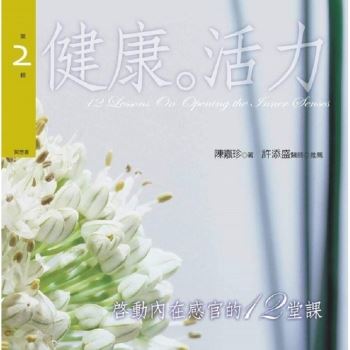In this powerful new collection, the author of two of the most celebrated memoirs in recent years presents the autobiographical writings of 14 of her English-speaking predecessors and contemporaries. The women who tell their stories in Written By Herself, Vol. II represent three generations, four continents, and a range of experience that is equaled only by the diversity with which they transform life into literature.
Here are England's Vera Brittain, commemorating the deaths of the men she loved in the carnage of World War I; Emma Mashinini, who endured imprisonment and torture as a labor organizer in South Africa; Vijaya Lakshmi Pandit, the daughter of Indian aristocracy who became an architect of her country's independence; and Edith Mirante, the wisecracking American whose passion for justice took her to the opium trails of Burma. Collected in this stirring volume, their voices demonstrate the ways in which women strive for power, inclusion, and autonomy-- and never fail to move, inspire, and instruct us. Contributors include: Margery Perham, Isak Dinesen, Shudha Mazumdar, Vivian Gornick, Vera Brittain, Elspeth Huxley, Vijaya Lakshmi Pandit, Gloria Wade-Gayles, Angelica Garnett, Emma Mashinini, Meena Alexander, Edith Mirante, Mary Benson, and Ruth First.| FindBook |
有 1 項符合
Written by Herself: Women’s Memoirs from Britain, Africa, Asia, and the United States的圖書 |
 |
Written by Herself: Women’s Memoirs from Britain, Africa, Asia, and the United States 作者:Conway 出版社:Vintage 出版日期:1996-09-17 語言:英文 規格:平裝 / 704頁 / 20.3 x 12.7 x 4.6 cm / 普通級/ 初版 |
| 圖書館借閱 |
| 國家圖書館 | 全國圖書書目資訊網 | 國立公共資訊圖書館 | 電子書服務平台 | MetaCat 跨館整合查詢 |
| 臺北市立圖書館 | 新北市立圖書館 | 基隆市公共圖書館 | 桃園市立圖書館 | 新竹縣公共圖書館 |
| 苗栗縣立圖書館 | 臺中市立圖書館 | 彰化縣公共圖書館 | 南投縣文化局 | 雲林縣公共圖書館 |
| 嘉義縣圖書館 | 臺南市立圖書館 | 高雄市立圖書館 | 屏東縣公共圖書館 | 宜蘭縣公共圖書館 |
| 花蓮縣文化局 | 臺東縣文化處 |
|
|
圖書介紹 - 資料來源:博客來 評分:
圖書名稱:Written by Herself: Women’s Memoirs from Britain, Africa, Asia, and the United States
內容簡介
作者簡介
Jill Ker Conway was born in Hillston, New South Wales, Australia, graduated from the University of Sydney in 1958, and received her Ph.D. from Harvard University in 1969. From 1964 to 1975 she taught at the University of Toronto and was Vice President there before serving for ten years as President of Smith College. Since 1985 she has been a visiting scholar and professor in M.I.T.’s Program in Science, Technology and Society, and she now lives in Boston, Massachusetts.
NOTES ON CONTRIBUTORS: Margery Perham (1895-1982) went to Africa to study race relations on a Rhodes Fellowship. Her sojourn in Africa made her an expert on tribal institutions and a passionate and lifelong supporter of the rights of native peoples, in her writings and as director of the Institute of Colonial Studies. Vera Brittain (1893-1970) served as a nurse during World War I, the conflict in which her fiancée, her beloved brother, and all his friends were killed. Later Brittain became a committed feminist and wrote extensively about the psychological costs of war. Testament of Youth is a moving and influential account of the slaughter of 1914-18. Angelica Garnett (1918- ) is the daughter of artist Vanessa Bell (Virginia Woolf’s sister) and Bell’s artist lover Duncan Grant. Garnett’s memoir depicts the sophisticated, permissive, and intellectual world of the Bloomsbury circle in which she was raised, and chronicles her quest to come to terms with her extraordinary family and to pursue her own artistic career. Isak Dinesen Baroness Blixen (1885-1962) was born in Denmark and followed her husband to a coffee plantation in Kenya, where she fell in love with Africa and African people. She became a writer, twice nominated for the Nobel Prize, and is best known for her classic memoir Out of Africa. Elspeth Huxley (1907- ) was born in London and raised in Kenya on her parents’ coffee plantation, developing a lifelong love of Africa. She wrote three memoirs, including The Flame Trees of Thika, and was awarded the C.B.E. in 1960 for her extensive commentary on African history and politics. Mary Benson (1919- ) was born to an affluent white family in Pretoria. She became a committed opponent of apartheid and testified against it before the United Nations. After being arrested and exiled from South Africa, she wrote plays and novels about apartheid and a biography of Mandela. Ruth First (1925-1982) was a journalist in Johannesburg who, at age 21, exposed brutal conditions among miners and farm laborers. Married to the leader of the South African Communist party, First edited a reform journal. She was arrested and detained in solitary confinement for four months of psychological terror and interrogation. She was later killed by a letter bomb while living in exile. Emma Mashinini (1929- ) was born to a black family in Johannesburg. After leaving an abusive husband, Mashinini worked in a factory where she began her career as a labor organizer. She led labor protests through the 1960s and 70s, and was eventually put in prison for six months, where she survived constant interrogation and intimidation. Shudha Mazumdar (1899- ) was born in Calcutta and married at 12 to a Civil Service magistrate. In her travels around India, Mazumdar became interested in women’s welfare, and the needs of prostitutes and women prisoners. She organized and worked for many women’s groups, and after her husband’s death, felt free to support Gandhi and the nationalist movement as well, though women’s welfare remained the focus of her life’s work. Vijaya Lakshmi Pandit (1900- ) was Nehru’s sister and the aunt of Indira Gandhi. She was jailed many times for her active opposition to British rule. After independence, Pandit served as Ambassador to the Soviet Union, the U.S., and Britain, and led the Indian delegation to the United Nations, where she served as President of the U.N. General Assembly from 1964-68. Her opposition to Indira Gandhi’s semi-military rule earned her the popular name "Lamp of India." Meena Alexander (1951- ) was born to an Indian service family in Allahabad. She entered the University of Khartoum at 13, and then earned her Ph.D. in England. A poet, novelist, playwright, and critic, Alexander now lives with her American husband in Manhattan. Vivian Gornick (1935- ), journalist and scholar, was born in the Bronx. Her memoir Fierce Attachments examines her intense relationship with her Jewish mother, a committed Communist Party member. Gornick has taught English literature, written for The Village Voice, and written books on feminist issues. Gloria Wade-Gayles (1938- ) was born in Memphis. A literary scholar and poet, she teaches at Spelman College, and has written extensively on black women’s fiction and black women’s spirituality. Her memoir Pushed Back to Strength traces her initial rejection of Christianity as oppressive, and her eventual journey back to the spirituality of her mother and grandmother. Edith Mirante (1953- ) pursued a career as a painter before traveling to Southeast Asia, where her eyes were opened to political oppression in Burma. She has since worked as an activist for the rights of tribal peoples and the needs of Third World women. A black belt in karate, Mirante’s adventures in Burma took her among opium drug lords and troops of women soldiers, and are told with humor and verve in her memoir, Burmese Looking Glass.
|











